Prince Charles marks 80th anniversary of 'forgotten Dunkirk'
Prince Charles has marked the 80th anniversary of what is known as the “forgotten Dunkirk”, as he remembered the soldiers caught up and killed in a World War Two battle in France.
Charles, who is in Scotland during lockdown, honoured the mostly Scottish soldiers from the 51st Highland Division who were captured at St Valery-en-Caux in France.
The prince, who is the Duke of Rothesay when he is in Scotland, took a salute at Birkhall as a piper played, on Friday morning.
Charles said: “On 12th June 1940, after a gallant stand, the 51st Highland Division with supporting arms and services, including elements from English regiments, was forced to surrender to the German army at St Valery-en-Caux on the Normandy coast of France.
“At 10am this morning, on this year’s 80th anniversary, pipers throughout Scotland and further afield were on their doorsteps playing the celebrated march, the Heroes of St Valery, in honour of the fallen and to remember a battle in which those of the division displayed the greatest courage and tenacity.
“We remember all who served and who sacrificed so much.”
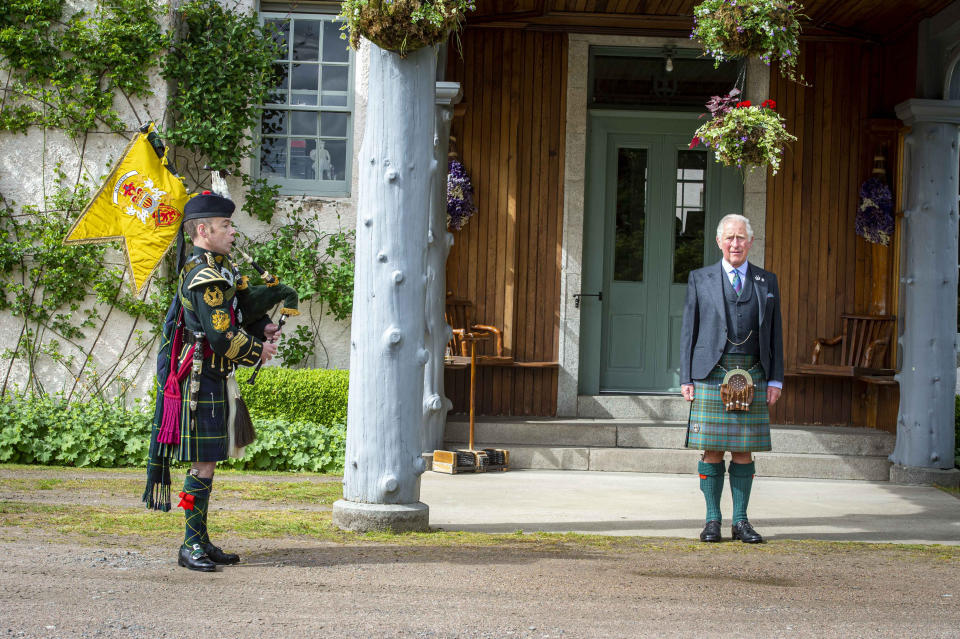
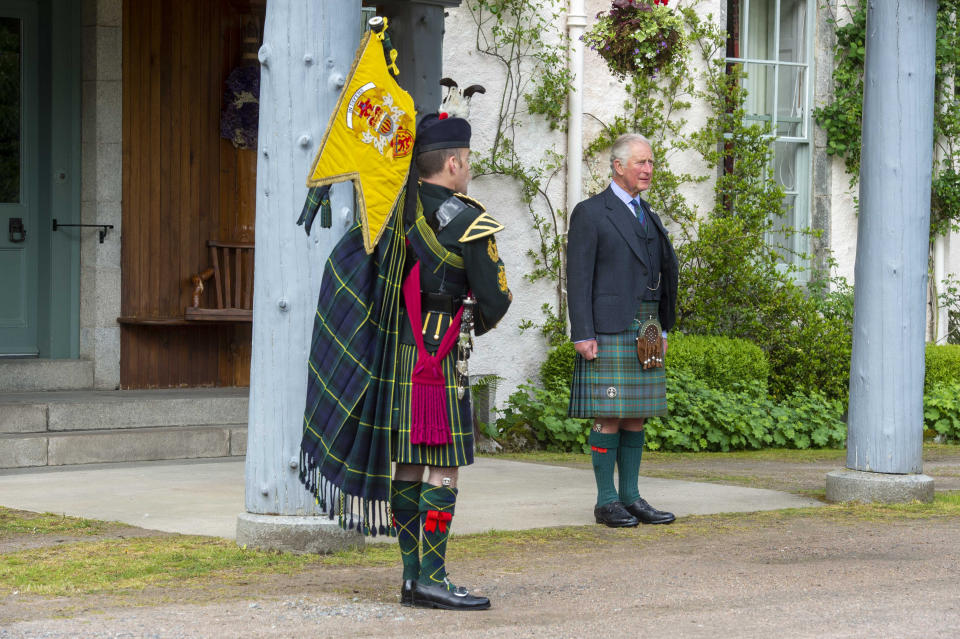
Read more: Duchess of Cornwall dubs herself 'ancient fairy godmother' of children's writing competition
Pipe major Richard Grisdale, piper to the Queen, played the tribute at Windsor Castle, while the Prince of Wales took the salute from a piper at his Scottish home of Birkhall.
The pipers performed Heroes Of St Valery, which was composed by Donald MacLean, who was captured at St Valery in June 1940 and spent four years as a prisoner of war.
On Friday evening at 9pm there will be a tribute concert featuring performances from Celtic-rock stars Runrig, the Red Hot Chilli Pipers and others.
Lieutenant General Sir Alistair Irwin, president of Royal British Legion Scotland and Poppyscotland and a vice-president of RCET: Scotland’s Armed Forces Children’s Charity, said: “St Valery represents a hugely significant moment in our nation’s history, and it is quite right that the bravery and fortitude of the great 51st Highland Division should be marked in this moving way.”
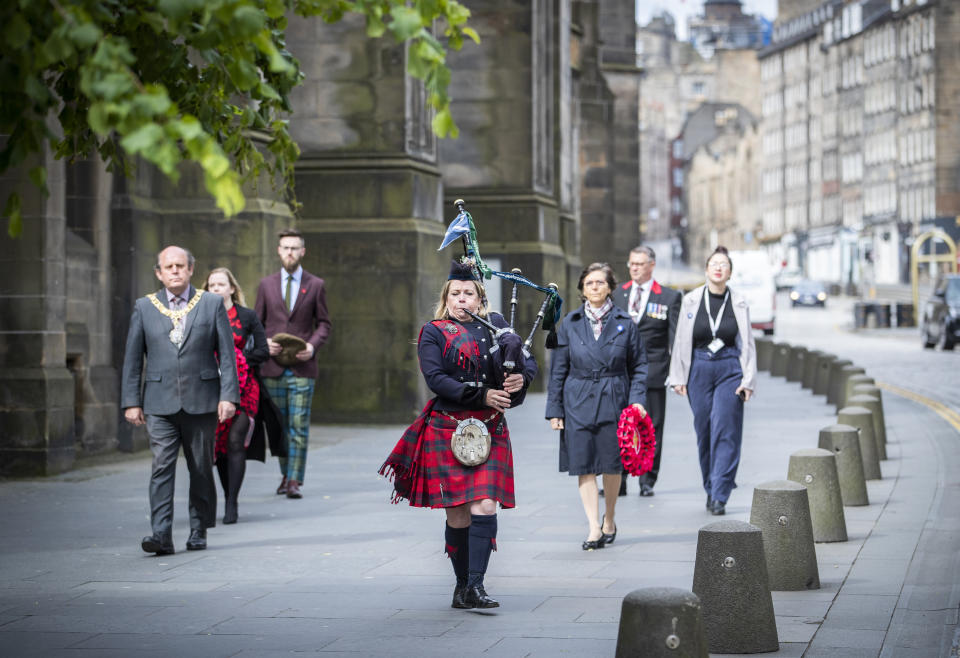
Read more: FA Cup final to be renamed after Prince William's mental health charity
Scotland’s veterans minister Graeme Dey said: “There is barely a town or village in the Highlands that was unaffected by the events at St Valery in June 1940, yet many people today don’t know of the incredible bravery shown by the soldiers of the 51st Highland Division.
“Eighty years on from such a significant date in Scotland’s history, it is vitally important that the heroic stance the 51st Division took that day is remembered, not only today but in the years to come.”
What happened at St Valery?
The 51st Highland Division was made up of 10,000 mainly Scottish soldiers and they landed in France in January 1941 as part of the British Expeditionary Force (BEF).
The BEF and the French Army was pushed back into northern France by the advancing German army.
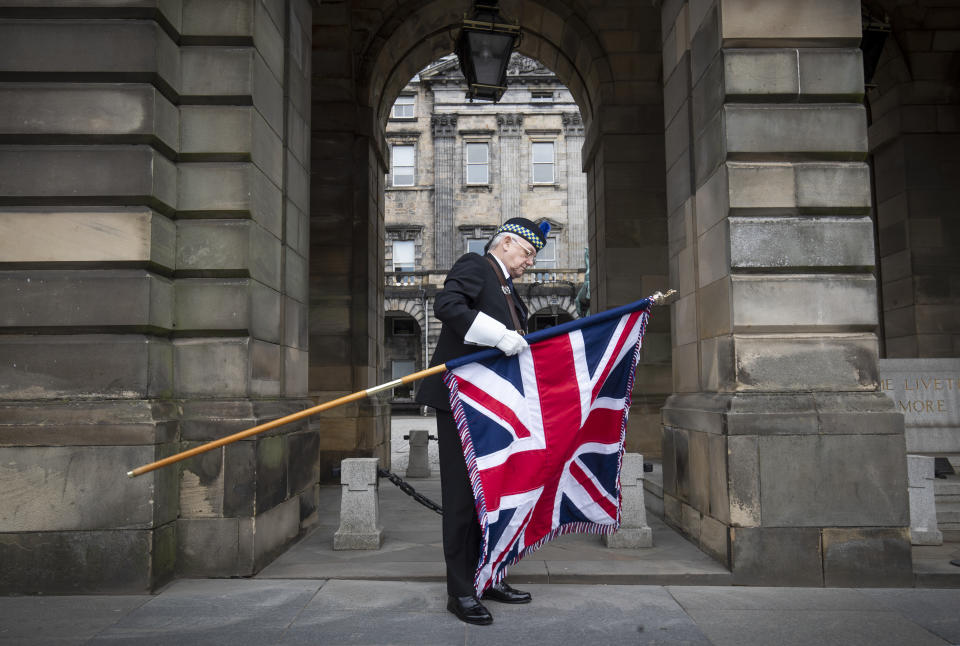
Read more: Who was Prince Philip's other royal family?
The 51st division became separated from the rest of the BEF, and while many of those headed for Dunkirk, the division was ordered to “hold the line” with the French army.
While the famous evacuation at Dunkirk was taking place, the soldiers from the 51st were fighting a losing battle.
It resulted in the deaths of 1,000 men, with 4,000 wounded and thousands taken prisoner.
Donald Smith, who was one of the teenage soldiers, told BBC: “We knew nothing about Dunkirk. We never knew anything about it. All we were told was that we were moving back to northern France.
“We had been in a lot of skirmishes. But then we moved back to Abbeville where one of the biggest battles was. It was a battle to end all battles.
“We were pushed back right along the Normandy coast. You would find along the way graves of the 51st.”
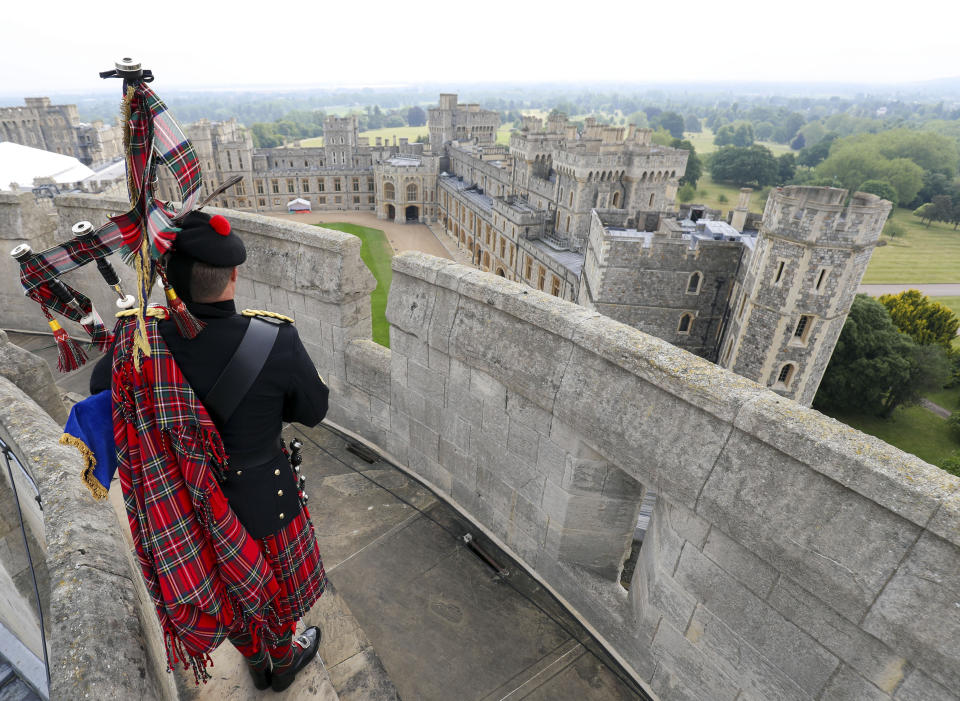
Bob Shanks, chairman of the Seaforth Highlanders’ Regimental Association, told The Ross-Shire Journal, that the plan for the 51st was for them to head west and escape on a flotilla of ships which had sailed from Britain.
He said: “They were tantalisingly close, but unfortunately things were working against them.
“The mist came down and the Germans advanced very quickly.”
General Victor Fortune had to surrender to the German forces on 12 June, 1940.
The division’s history website said: “General Fortune considered all the options, a counter attack, further resistance, retaking the town but against this there was no possibility of evacuation or support, the men were exhausted and virtually out of ammunition, with no artillery ammunition at all.
“Shortly before 1000hrs on the 12th June General fortune took the most difficult of decisions - to surrender.”
The captured were taken to prisoner of war camps in eastern Europe but little was mentioned on the Home Front about what happened, in a bid to hold onto morale.
Smith and other veterans say they believe the division was “sacrificed” to ensure success at Dunkirk, but Shanks said this was not the case.
Smith ended up in a PoW camp in Poland and was eventually liberated by US soldiers. He was the only one of his friends who signed up to survive.

 Yahoo News
Yahoo News 
